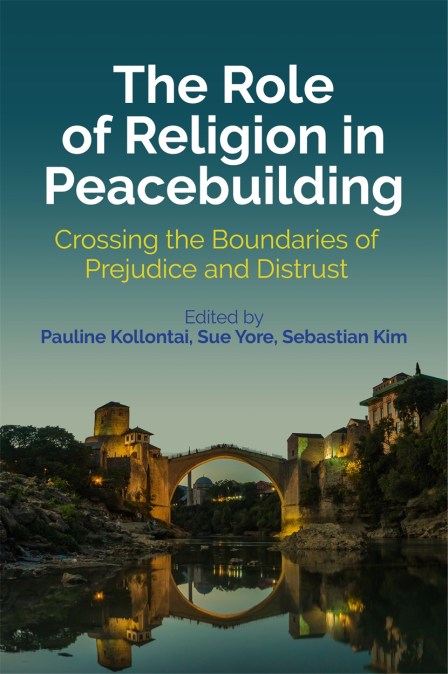The question ‘who is my neighbour?’ challenges the way we see ourselves as well as the way we see others. Especially in situations where we feel conflicted between our own self-identity and common identity within a wider society.
Historically, religion has contributed to this inner conflict by creating ‘us versus them’ mentalities. Challenging this traditional view, this volume examines how religions and religious communities can use their resources, methodology and praxis to encourage peace-making.
The book is divided into two parts – the first includes sources, theories and methodologies of crossing boundaries of prejudice and distrust from the perspectives of theology and religious studies. The second includes case studies of theory and practice to challenge prejudice and distrust in a conflict or post-conflict situation. The chapters are written by scholars, religious leaders and faith-motivated peace practitioners from various global contexts to create a diverse academic study of religious peace-building.
Historically, religion has contributed to this inner conflict by creating ‘us versus them’ mentalities. Challenging this traditional view, this volume examines how religions and religious communities can use their resources, methodology and praxis to encourage peace-making.
The book is divided into two parts – the first includes sources, theories and methodologies of crossing boundaries of prejudice and distrust from the perspectives of theology and religious studies. The second includes case studies of theory and practice to challenge prejudice and distrust in a conflict or post-conflict situation. The chapters are written by scholars, religious leaders and faith-motivated peace practitioners from various global contexts to create a diverse academic study of religious peace-building.
Newsletter Signup
By clicking ‘Sign Up,’ I acknowledge that I have read and agree to Hachette Book Group’s Privacy Policy and Terms of Use
Reviews
The Centre for Religion in Society at York St John University has an impressive record of scholarly engagement with the challenges of peacemaking in the contemporary world. This latest volume brings rich and stimulating new insight into the ways religion can contribute to peace and reconciliation in contexts of tension and conflict.
The editors have assembled a stunning range of case studies and theological investigations that correspond honestly to the complexity of religious relationships to peace and violence.
What can one say about this anthology? The genre is always liable to produce an academic pick'n'mix. The Role of Religion in Peacebuilding is anything but! It is driven by a powerful purpose; it weaves its way in and between diverse cultures, contexts and faiths. Its strength is its honesty and incisive awareness of religion's ambivalent role - and it is an excellent read!
By combining case studies with fresh insights on prejudice and reconciliation, this book provides highly important material for both scholars in the field of conflict-theory, practitioners involved in processes of peace-building as well as for students of religion and social sciences.

